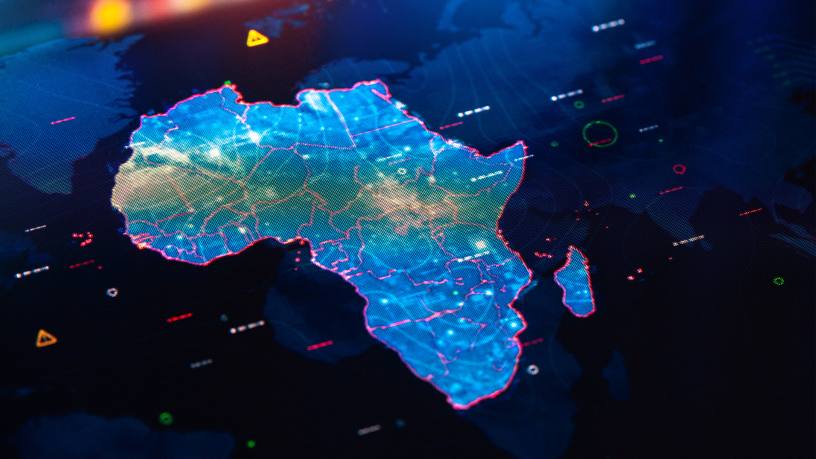While Africa saw record levels of foreign direct investment in 2021 – up 113% to $83bn compared to 2020 – this only represented 5.2% of the global total. Despite this significant investment, and the ongoing investment over the years, the continent still requires much more.
Elevated perceived risks, the high cost of foreign exchange and a lack of transparency and predictability might be cause for caution, regardless of Africa’s young, dynamic and growing population, and the abundance of natural resources.
But in order to unlock trade flows and become globally competitive – essential for accelerating growth, driving job creation and developing financial inclusion – Africa is looking inwards.
By improving efficiencies across the continent and leveraging untapped potential, Africa can take its future into its own hands. It can encourage investors around the globe to pay attention and see the opportunities that exist for the development of critical investment projects.
AfCFTA: A focus on intra-, not just inter-
Launched at the start of 2021, the African Continental Free Trade Area (AfCFTA) should prove to be an exciting game changer for Africa.
Measured by the number of countries participating, the AfCFTA has created the largest free trade area in the world. Connecting 1.3 billion people across 54 countries, with a combined gross domestic product of $3.4tn, it comes at a time when much of the world is turning away from co-operation and free trade.
In creating a single market with the free movement of goods and services, the AfCFTA will seek to cut red tape and simplify customs procedures, bringing with it significant income gains.
Currently, only 17% of African exports are intra-continental, compared with 59% for Asia and 68% for Europe. The potential for transformation within Africa is therefore significant and the AfCFTA signals a major effort towards a more integrated African regional economy, enhancing intra-regional African trade flows as well as enabling the continent to further penetrate the global supply chain.
As it stands, Africa engages in the global value chain mainly via the supply of primary goods. By boosting the intra-regional economy, the AfCFTA can bring new dynamics to Africa's participation in the chain.
According to the World Bank’s analysis, the AfCFTA will boost intra-continental exports by over 81% and exports to non-African countries by 19% by 2035. It provides a unique opportunity for countries in the region to competitively integrate into the global economy, reduce poverty and promote inclusion.
Digitisation unlocks efficiencies and drives competition
While this is a huge step in the right direction, to realise the export potential of Africa, intra-African tariff and non-tariff barriers still need further reduction and there must be optimisation of customs procedures.
Effective implementation of the AfCFTA requires digitisation to leapfrog existing infrastructure challenges and increase efficiencies. Digital documentation will facilitate the ease of movement of people and goods across member states while ensuring adherence to proper checks and balances. Additionally, through digital systems, taxes relating to AfCFTA trade can be recorded, collected and managed.
Across the African continent, the continuing spread of networks, sensors, artificial intelligence and automation is driving a digital revolution. Financial institutions in Africa are undergoing a transformation to adopt new digitised technologies that are enabling them to enhance their operations and identify different ways of serving their clients.
Across the continent, the spread of networks, sensors, artificial intelligence and automation is driving a digital revolution
As financial institutions optimise digital efficiencies within their operations, further benefits have emerged. These technologies have also created opportunities for challenger businesses, such as payments service providers, to deliver a simpler landscape in which to offer services to consumers. This, in turn, serves to assist in the development and expansion of financial inclusion on the continent.
As the global economy continues to recover from the Covid-19 pandemic, the importance placed on financial services to provide secure, low-cost and contactless digital tools to citizens has improved financial inclusion. This understanding is driving competition amongst financial services firms on the continent.
However, digitisation is an ongoing journey. The financial services industry will need to constantly adapt and evolve to retain efficiency and transparency while operating in a highly regulated environment.
Strengthening capital markets to mobilise capital
Africa is a continent that holds immense opportunity for private investors. It has a young, growing population and plentiful natural resources. Cities are seeing massive growth, and many countries have launched long-term industrialisation and digitisation initiatives, but significant investment and innovation is necessary to unlock the region’s full potential.
Despite being home to more than 36 stock exchanges that serve 43 economies, Africa’s capital markets remain relatively underdeveloped.
In 1993, the African Securities Exchange Association was formed to help develop and promote the capital markets landscape on the continent and to catalyse economic growth and societal transformation. The resulting efficiencies enabled broader market participation, increased intra-African capital flows, deepened market liquidity and expanded access to funding.
Perhaps the most important attribute underpinning efficient markets and development is high-quality, timely and trustworthy data. Access to this data – when it exists, is standardised, and is publicly available – helps investors make sound decisions.
For the many African countries seeking to attract more investment, the issue of strengthening and increasing liquidity in their capital markets is critically important. Domestic capital markets can protect economies from volatility, playing an essential role in driving the continent’s fast-rising rates of urbanisation, responding to climate change, addressing the urgent need for jobs and reducing development gaps.
Looking ahead with an introspective focus
Home to the largest free trade area in the world, a large, young and digitally literate population and blossoming capital markets, Africa has the resources to become a globally competitive continent.
By reducing intra-continental red tape, driving widespread digitisation and strengthening the continent’s capital markets, there is every reason Africa should experience an acceleration of growth.
Increasing intra-African efficiencies will only make the continent more attractive to external investors, unlocking trade flows and allowing Africa to become competitive on the global stage.

Cheryl Buss is the CEO of Absa International.












